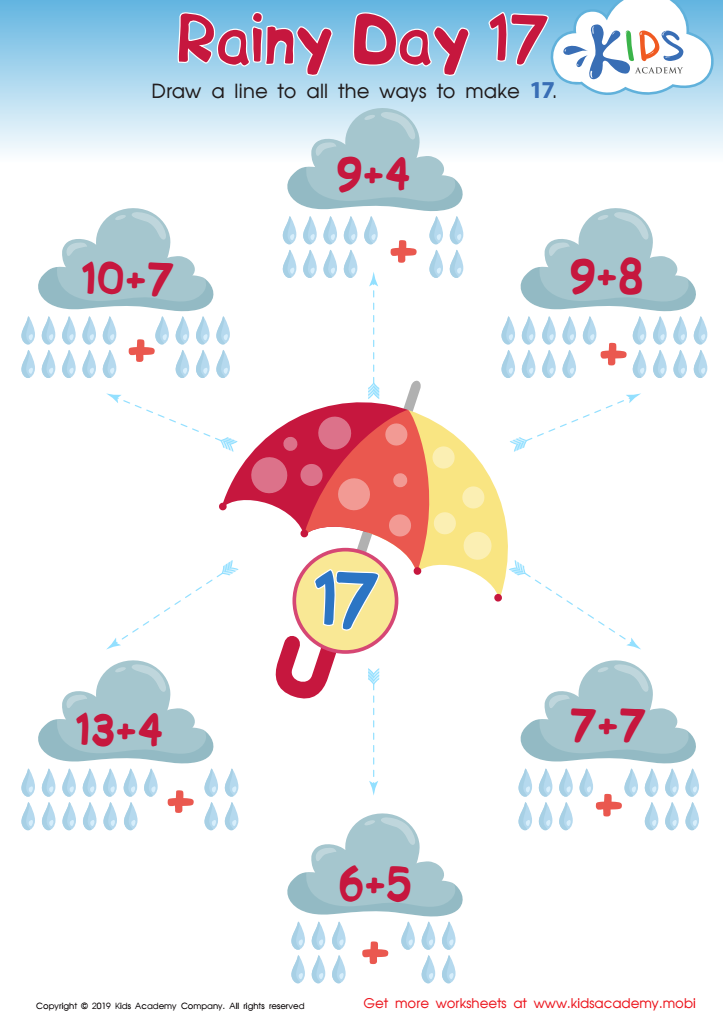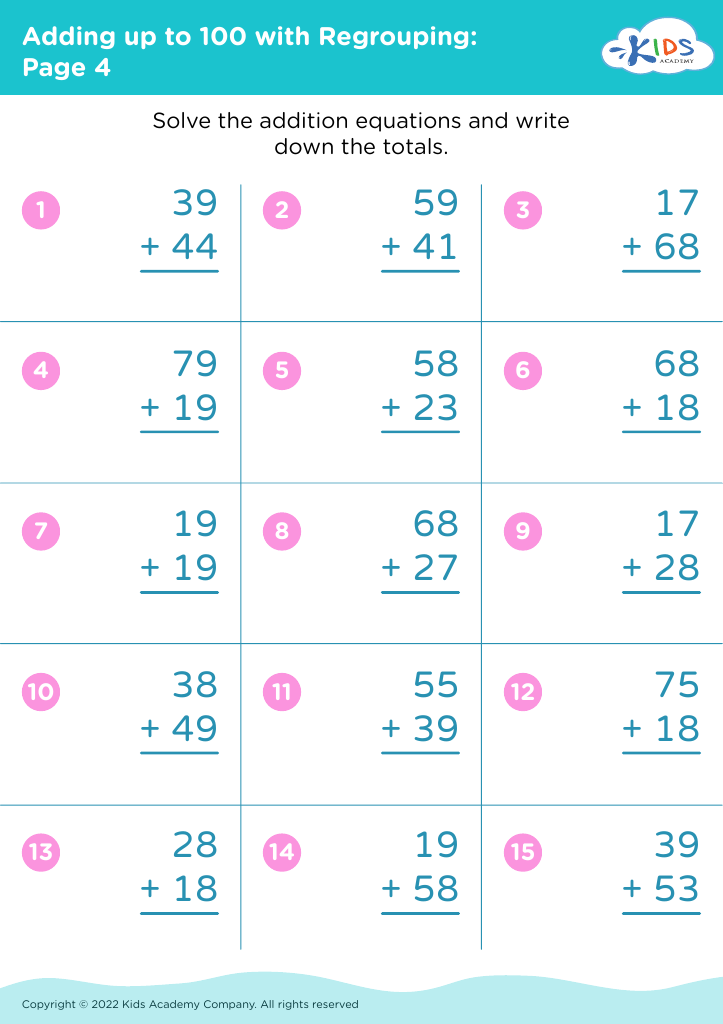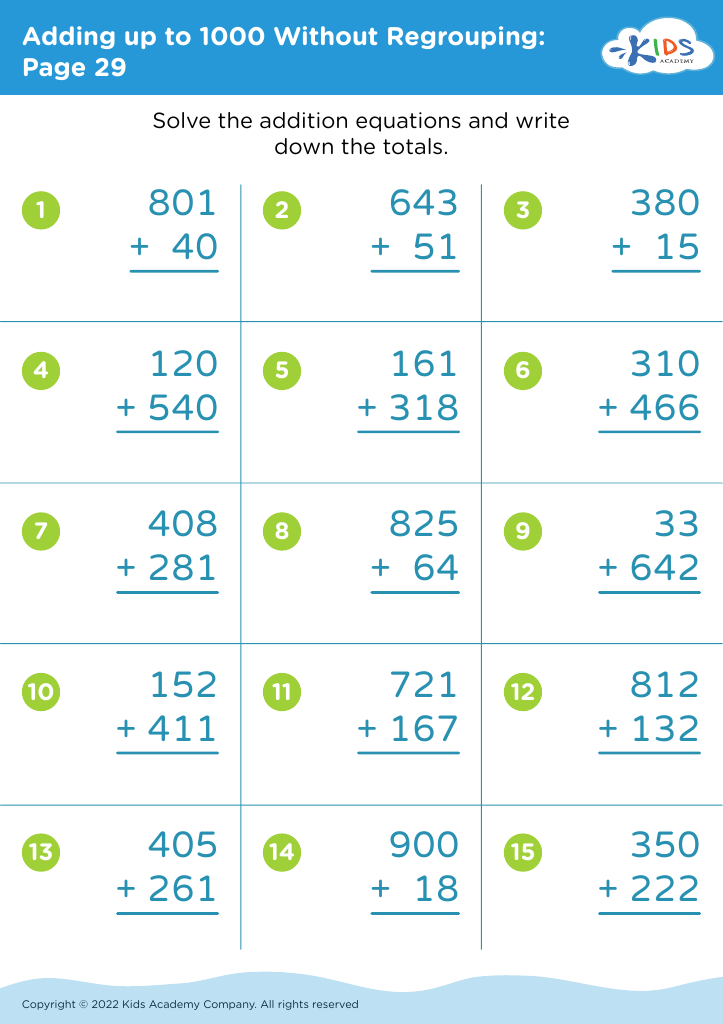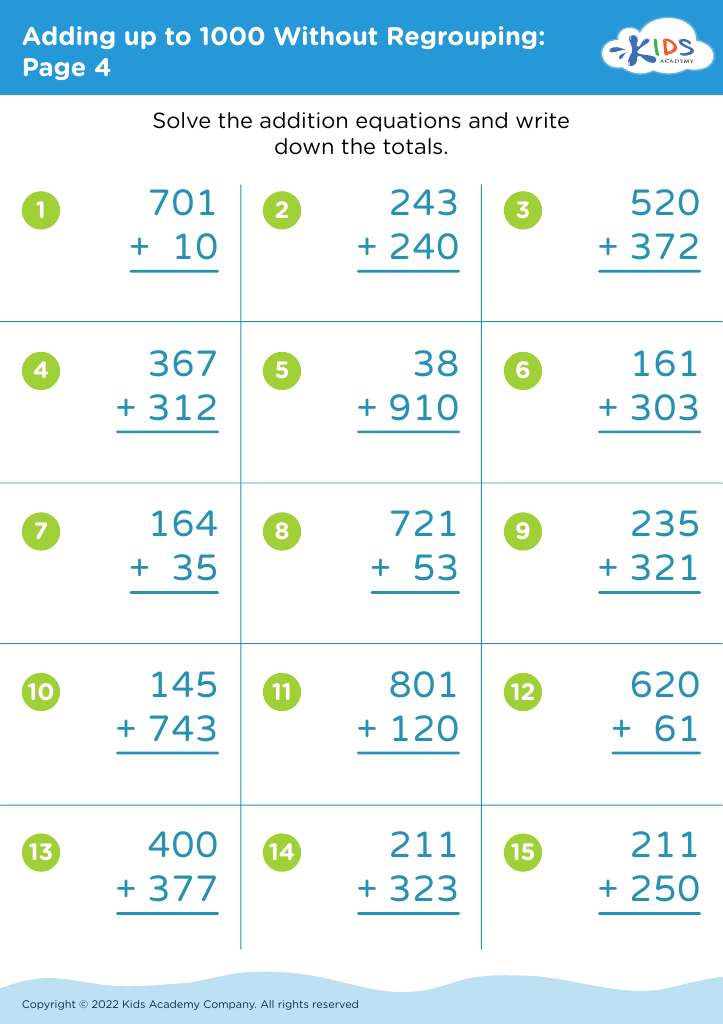Word Recognition Addition Worksheets for Ages 5-7
5 filtered results
-
From - To
Enhance your child's math and literacy skills simultaneously with our Word Recognition Addition Worksheets for ages 5-7. Specially designed to engage young learners, these colorful worksheets combine fun word recognition exercises with basic addition problems. Kids can practice identifying common words while solving exciting math challenges, ensuring a well-rounded educational experience. Perfect for both classroom and at-home learning, these worksheets help develop early reading skills, boost math fluency, and promote cognitive development in an engaging and interactive way. Give your child the tools they need to succeed with our expertly crafted addition and word recognition activities.


Rainy Day 17 Worksheet
Word recognition is a fundamental aspect of early literacy development for children aged 5-7, making it crucial for both parents and teachers to prioritize. At this developmental stage, children transition from recognizing letters and sounds to fluent reading. Strengthening word recognition skills helps them easily identify words, aiding comprehension, fluency, and overall reading confidence. Strong word recognition simplifies decoding unfamiliar words, reducing frustration and fostering a love for reading. This foundation benefits later educational stages, promoting vocabulary expansion, better understanding of complex texts, and improved spelling. Parents and teachers play a vital role by integrating engaging learning activities and consistent practice into daily routines. By fostering an environment rich in print and encouraging active engagement with texts, they help children develop automatic word recognition, enhancing their ability to read effortlessly and focus on understanding content. The integration of playful learning methods, such as word games, flashcards, and interactive reading sessions, not only supports cognitive development but also makes learning enjoyable, motivating young readers. Ultimately, investing in word recognition skills in the early years lays the groundwork for long-term academic success and ignites a lifelong passion for reading. Parents and teachers, by championing these foundational skills, positively influence children’s overall literacy journey and academic confidence.


 Assign to My Students
Assign to My Students








.jpg)










